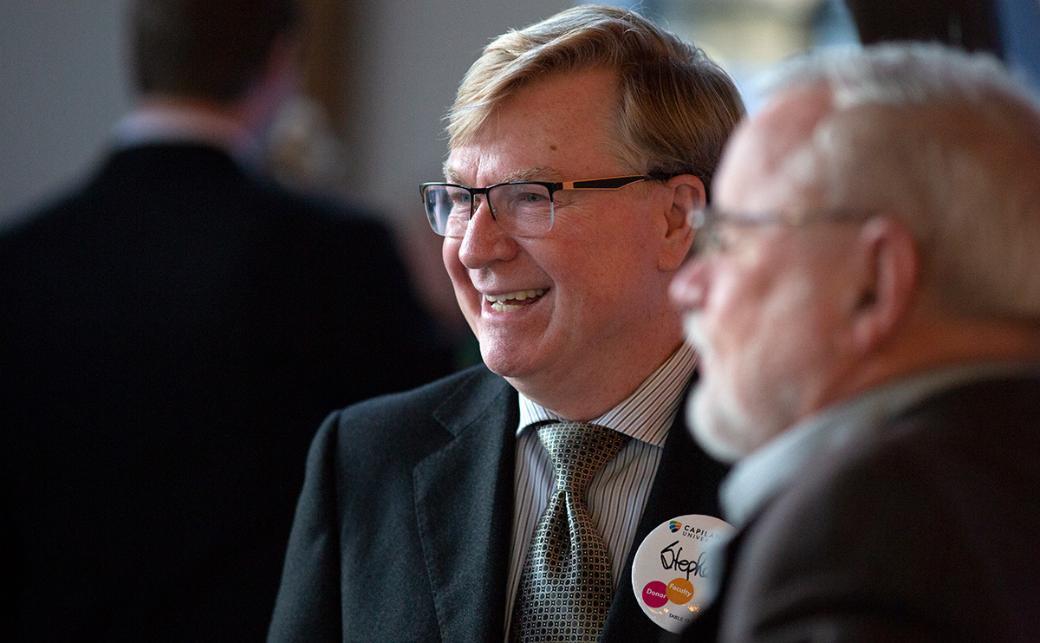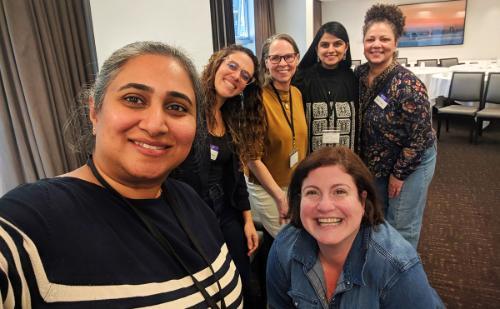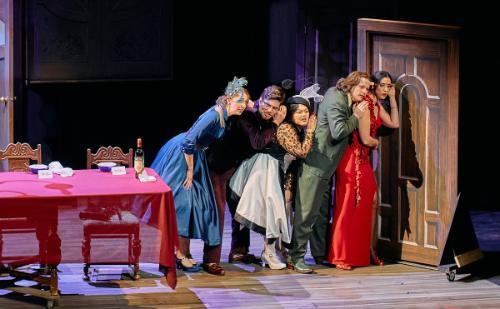The Gift of a Lifetime
Published24 April, 2024
Photo credit Tae Hoon Kim
After a loss, Stephen Williams turns to the power of legacy.

Stephen Williams’ approach to philanthropy turns the darkness of grief toward the light, empowering people with the legacy of people he loved.
Since he began teaching at Capilano University nearly three decades ago, Stephen has built and sustained three endowments and four annual awards, changing the lives of 121 students who need financial aid to help continue their studies in the Bachelor of Music Therapy degree program.
“When somebody passes, those that love them keep them in their hearts, but the broader circles of their influence disappear very quickly,” Stephen, a longtime CapU instructor and now coordinator of the Music Therapy program, said.
“Seeing their name on a scholarship is a way of valuing and keeping a connection to how important they were.”
Now, he’s devoting his own legacy to do the same, with a gift in his will to assist hundreds more hardworking, compassionate and talented music therapy students in the future.
Philanthropy as a family tradition
For Stephen, giving is a natural, nearly automatic gesture that honours his own past as much as it celebrates the future of young people in his field.
Raised by pious parents, including a father who was an Anglican priest, he lived in rectory housing or clergy residence; he remembers watching his parents regularly give 10 per cent of their income back to the church, through tithing.
It baffled him.
“As an eight-year-old, I was confused by the concept of tithing. I told my parents, ‘Wait a minute, you work for the church. You’re paid by the church. Then you give the money back to the church?’ My father had to patiently explain the concept.”
A longtime musician, his studies in Victoria, Toronto and Philadelphia eventually led to a great appreciation of the power of music therapy as a tool to help people cope with emotional, physical, and cognitive challenges in productive, healthy ways.
As an adult (much to his parents’ chagrin), he drifted away from organized religion. But he never forgot the lessons of his youth.
“I decided to use my money in a tithing concept for community organizations and charities. It’s part of a family history: when you have resources, you share them.”
He launched his teaching career in a turbulent era of the 1980s-90s, when the AIDS crisis led to tragic losses the world over. It was particularly challenging for him as a gay man to bear the loss of two partners to the disease. He’s since created the Brian Beaudoin Memorial Music Therapy Scholarships and the Gordon Hewitt Memorial Music Bursary in their honour.
“I like to think of myself as a vibrant survivor of the AIDS genocide. And when I started working at CapU, some key people in my life, including two different partners, died. And I was looking for a way to make a difference.”
Leaving a Legacy Gift
Learn more about how you can leave a legacy through planned giving to Capilano University.
Legacy GivingFrom grief to giving
Grief transformed into a resolve to ensure their names and the memories they evoke for him could be ever-present and practically impact the lives of hardworking students in financial need.
He defined the next stage of his life by generosity, starting with the small annual awards for his first partners.
“As I moved from teaching into the program coordinator position (at CapU), it became clear to me how much student financial need there was at CapU.”
“And that’s when building the endowment started.”
Since then, every loss has inspired reflection and generosity. His stepfather’s passing motivated him to establish a scholarship in his memory for international students, reflecting his own journey of studying abroad.
Losing his mother two years ago inspired Stephen to explore how he can continue to give and give his own loved ones the satisfaction he gets from seeing students thrive with financial aid.
He says that he’s seen a substantial growth in the public appreciation of music therapy, and its capacity to attract learners with strong values and a life purpose to transform the lives of vulnerable people.
“One significant change is that students as young as in grades 11 and 12 are already determined to pursue music therapy,” he says. “We continue to attract musically talented students with a desire to make a difference.”



